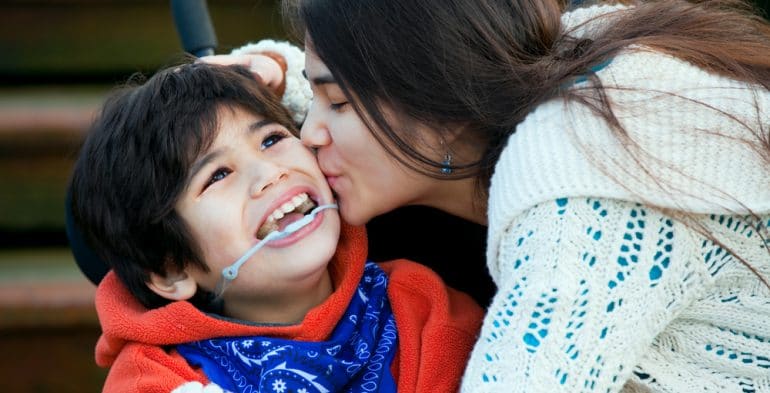
Cerebral Palsy
Cerebral palsy is a condition caused by damage to the brain A child with cerebral palsy is also sometimes called a spastic child because, in quite a few children with cerebral palsy, the muscles have increased tone. But this is a misnomer because some children with cerebral palsy can also be hypotonic or limp.
Symptoms and Signs of Cerebral Palsy
Though the cause is not known in most cases, a child who has been damaged during pregnancy, at the time of delivery or soon after birth, runs the potential risk of cerebral palsy. Children who had severe jaundice within 30 hours after birth or those born prematurely can also get this disease.
Unusual stiffness of the body or limpness should alert us to the possibility of CP.
If you notice that your child is slow in learning new skills as compared to his older sibling or children his age, you should consult your doctor to rule out this possibility.
Besides stiffness or limpness, these children can also have other problems like excessive drooling, speech disturbances, dental, eye and hearing problems and convulsions. Sometimes the disease can affect your child’s mental development and may cause learning difficulties. However, at least 50% of children with CP suffer no learning difficulties.
Managing Cerebral Palsy
Early diagnosis helps in management. However, do not despair if your child’s diagnosis was delayed; a holistic approach to management will benefit the child at any age.
If there is a specialized centre nearby for care of children with CP, your doctor will refer you there for treatment. Otherwise, write to the Spastics Society in your country or contact any of the charities or organizations that deal with CP.
No specific drug is available for CP. But sometimes a drug to reduce the stiffness may be advised. Occasionally, an expert may administer an injection into specific muscles. It is important that this injection be given in the early years of life (preferably in the first 5 years) so that child can learn to walk near-normally. Some children may benefit from surgery. No treatment should be undertaken without expert advice.
It’s good to know that many children with CP can lead independent and full lives. With training, most of them learn to look after themselves, though a small number may need supervision for several years.
A child with CP improves much faster if both parents share the responsibilities of his care. Living in a caring joint family can prove advantageous. As a child with CP often needs extra care, there is always a possibility that your spouse or other children may feel neglected, and this can lead to other problems. Guard against this by involving them in the care of the special child.







